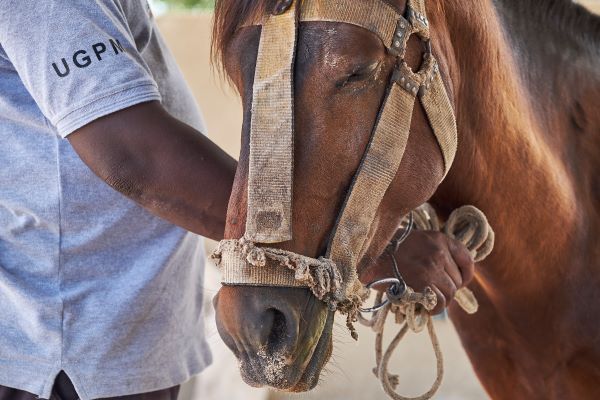A study in Senegal has discovered a link between working horse owners believing in horse emotion and their animal having improved health and wellbeing.
The study, which was a collaboration between Brooke and the University of Portsmouth, surveyed 299 working horse owners and their horses in Senegalese communities such as towns and villages in the Diourbel, Louga and Thies regions.
It determined that horse owners who had a stronger belief in horse sentience and an overall positive attitude to horses owned horses with a healthier body condition.
This discovery is particularly important for inhabitants of low- and middle-income countries who depend on working horses for their livelihood.
Those owners who believed in a horse’s emotions fed their horses properly and consequently owned horses who had better health and were better behaved.
Households with enough provisions to cover their own needs were found to look after their horses better and provide them with a good diet, shelter and veterinary care.
Critical findings
“This finding is critical for organisations working to improve animal welfare, as it suggests that fostering empathy and compassion in horse owners could be a key strategy for improving the lives of working horses,” said Leanne Proops, associate professor in animal welfare at the University of Portsmouth.
“We know that people tend to protect themselves from distress by thinking that animals are not so capable of feeling emotions when they are faced with situations where animals may be suffering.”
“Our hope is that these insights drive advocacy for better policies to protect working horses, encourage funding for welfare programs and raise awareness in communities about how knowledge of animal emotions can directly benefit their animals and, in turn, their own livelihoods.”
The research also found that having a working donkey in Senegal meant farmers produced 78 per cent more ground nuts, 46 per cent more maize and 44 per cent more millet.










